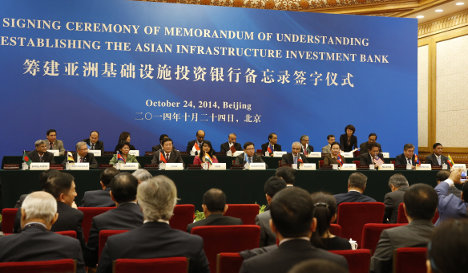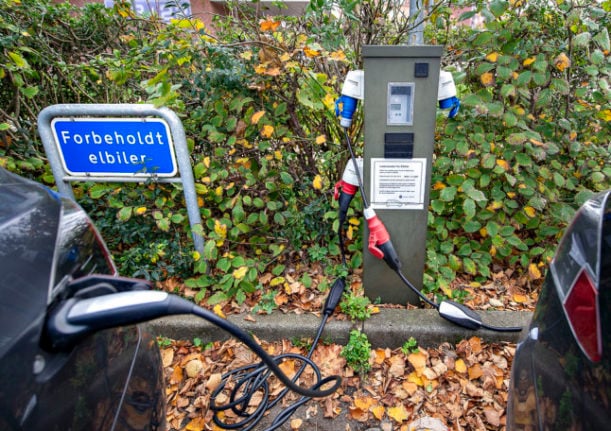In a statement, the ministry said that Italy, France and Germany would becoming prospective founding members of the $50 billion institution, seen as a rival to the World Bank.
The announcement followed a report in the Financial Times late on Monday.
“The AIIB, as a new investment bank working in partnership with existing multilateral investment/development banks, could play an important role to provide funds for addressing the large infrastructure needs in Asia,” the statement said.
“The AIIB will thus promote economic and social development in the region and contribute to global growth.”
Shrugging off concerns from the US, the statement added that the three European countries were keen “to work with the AIIB founding members to establish an institution that follows the best standards and practices in terms of governance, safeguards, debt and procurement policies.”
The decision by the three EU states came a week after Britain announced it would join the bank, which was launched last year by Chinese President Xi Jinping. The bank is seen as being part of China’s plans to widen its international influence.
The UK's Finance Minister George Osborne said the move would give British firms the best opportunities to invest and work in the world’s fastest growing markets as parts of the country’s long-term economic plan.
But London's decision drew a cautious response from Washington, in a rare note of discord in their "special relationship", and followed criticism from the US about Britain's cuts to defence spending.
The FT said the move by Italy, France and Germany was a major diplomatic setback for the Obama administration, which argues that western countries would have more influence as non-members and could push for higher lending standards.
The US also has concerns about the bank’s standards of governance as well as environmental and social safeguards.
There are also worries that the institution, which aims to attract investment in infrastructure in areas such as transport, energy and telecommunications throughout Asia, would contribute to the spread of China’s “soft power” in the region, at the expense of the US.
The FT reported that Australia is also now rethinking its position.
Martin Schulz, the president of the EU parliament, was quoted by Reuters as saying that he welcomed the four European nations joining the AIIB, but stressed that the bank must conform to internationally accepted standards.
China and 20 other countries signed a memorandum of understanding to establish the Beijing-headquartered bank in October.
The bank has support from countries including India, Singapore, Malaysia, Cambodia, Pakistan, the Philippines, Uzbekistan and Vietnam.



 Please whitelist us to continue reading.
Please whitelist us to continue reading.
Member comments